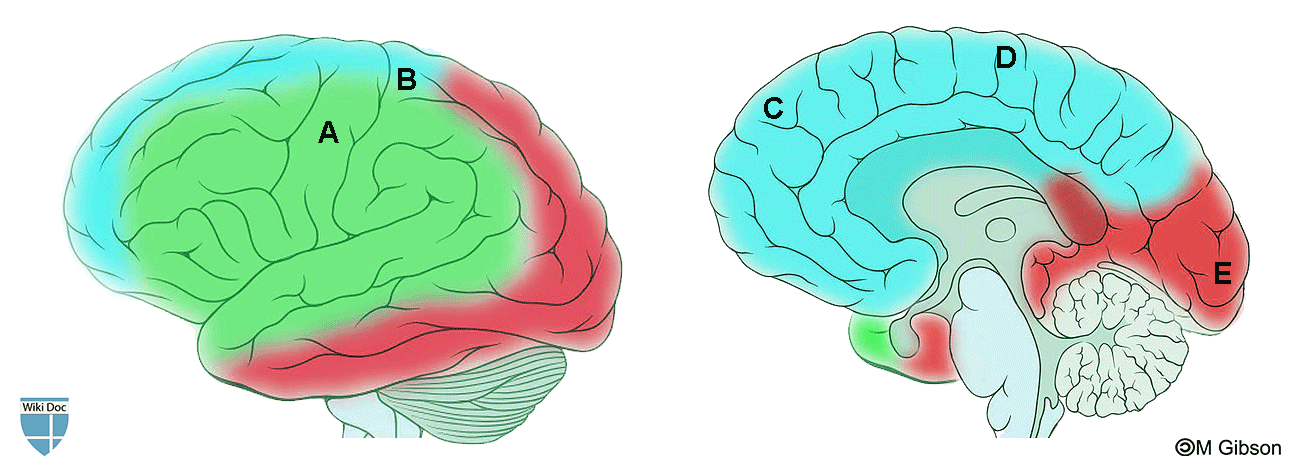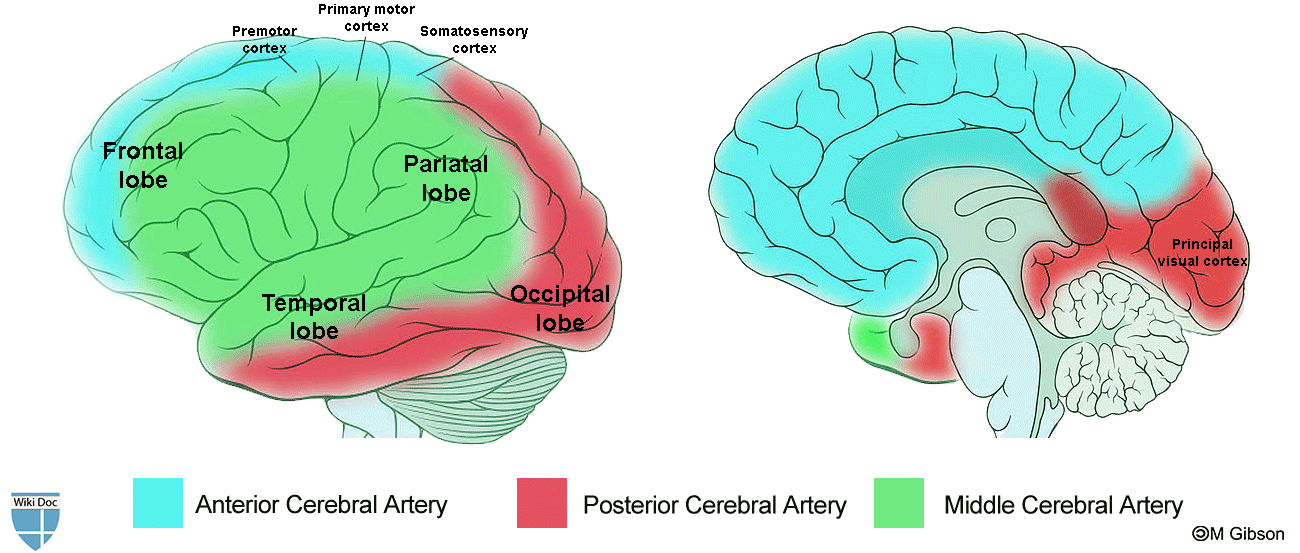WBR0614: Difference between revisions
Jump to navigation
Jump to search
Rim Halaby (talk | contribs) (Created page with "{{WBRQuestion |QuestionAuthor={{Rim}} |ExamType=USMLE Step 1 |MainCategory=Anatomy, Pathophysiology |SubCategory=Neurology |MainCategory=Anatomy, Pathophysiology |SubCategory=...") |
Rim Halaby (talk | contribs) No edit summary |
||
| Line 22: | Line 22: | ||
|Prompt=A 72-year-old male patient with previous medical history of diabetes and hypertension presents to the emergency department for an acute onset of left leg paralysis. The patient tells the physician that he woke up in the morning and was not able to lift his left leg. Physical exam reveals paralysis and loss of sensation in the left leg with intact motion and sensation in the upper extremities and right lower extremities. The cranial nerves and cerebellar exam are normal. Stroke in which of the following areas may explain the symptoms of the patient? | |Prompt=A 72-year-old male patient with previous medical history of diabetes and hypertension presents to the emergency department for an acute onset of left leg paralysis. The patient tells the physician that he woke up in the morning and was not able to lift his left leg. Physical exam reveals paralysis and loss of sensation in the left leg with intact motion and sensation in the upper extremities and right lower extremities. The cranial nerves and cerebellar exam are normal. Stroke in which of the following areas may explain the symptoms of the patient? | ||
[[Image: | [[Image:Cortex areas.gif|center|600px]] | ||
|Explanation=The cerebral cortex functions are specific to each area of the brain. The primary motor cortex is located in the posterior portion of the frontal lobe. It works in association with other motor areas including premotor cortex, the supplementary motor area, posterior parietal cortex, and several subcortical brain regions, to plan and execute movements. Branches of the middle cerebral artery provide most of the arterial blood supply for the primary motor cortex. The medial aspect that controls the lower extremities is supplied by branches of the anterior cerebral artery. | |Explanation=The cerebral cortex functions are specific to each area of the brain. The primary motor cortex is located in the posterior portion of the frontal lobe. It works in association with other motor areas including premotor cortex, the supplementary motor area, posterior parietal cortex, and several subcortical brain regions, to plan and execute movements. Branches of the middle cerebral artery provide most of the arterial blood supply for the primary motor cortex. The medial aspect that controls the lower extremities is supplied by branches of the anterior cerebral artery. | ||
Shown below is an image depicting the cerebral cortex functions. | Shown below is an image depicting the cerebral cortex functions. | ||
[[Image:Cerebral | [[Image:Cerebral areas functions.gif|center|600px]] | ||
Educational objective: | Educational objective: | ||
Revision as of 01:06, 7 October 2013
| Author | [[PageAuthor::Rim Halaby, M.D. [1]]] |
|---|---|
| Exam Type | ExamType::USMLE Step 1 |
| Main Category | MainCategory::Anatomy, MainCategory::Pathophysiology |
| Sub Category | SubCategory::Neurology |
| Prompt | [[Prompt::A 72-year-old male patient with previous medical history of diabetes and hypertension presents to the emergency department for an acute onset of left leg paralysis. The patient tells the physician that he woke up in the morning and was not able to lift his left leg. Physical exam reveals paralysis and loss of sensation in the left leg with intact motion and sensation in the upper extremities and right lower extremities. The cranial nerves and cerebellar exam are normal. Stroke in which of the following areas may explain the symptoms of the patient?
 |
| Answer A | AnswerA::A |
| Answer A Explanation | AnswerAExp:: |
| Answer B | AnswerB::B |
| Answer B Explanation | AnswerBExp:: |
| Answer C | AnswerC::C |
| Answer C Explanation | AnswerCExp:: |
| Answer D | AnswerD::D |
| Answer D Explanation | AnswerDExp:: |
| Answer E | AnswerE::E |
| Answer E Explanation | AnswerEExp:: |
| Right Answer | RightAnswer:: |
| Explanation | [[Explanation::The cerebral cortex functions are specific to each area of the brain. The primary motor cortex is located in the posterior portion of the frontal lobe. It works in association with other motor areas including premotor cortex, the supplementary motor area, posterior parietal cortex, and several subcortical brain regions, to plan and execute movements. Branches of the middle cerebral artery provide most of the arterial blood supply for the primary motor cortex. The medial aspect that controls the lower extremities is supplied by branches of the anterior cerebral artery.
Shown below is an image depicting the cerebral cortex functions.  Educational objective: The primary motor cortex controls motor activity, the lateral area supplied by the MCA controls the upper extremities, while the medial area supplied by the ACA controls the motor activity of the lower extremities. |
| Approved | Approved::No |
| Keyword | |
| Linked Question | Linked:: |
| Order in Linked Questions | LinkedOrder:: |